LATEST INSIGHTS
Your Present Location: LATEST INSIGHTS-
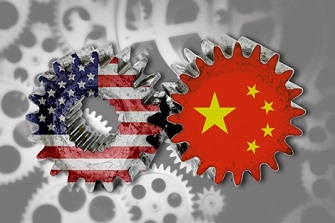
Chinese experts split over phase one deal's significance for China-US ties
Chinese experts on Saturday debated how the phase one trade agreement will impact China-US relations, with some arguing that the deal is too superficial to bring down tensions. Others suggested that the agreement could mean a turn for the better. There is no winner in a trade war and the biggest take-away from it is that the US has come to realize that nations can peacefully coexist while being different, Wei Jianguo, former Chinese Vice Commerce Minister, said at the Global Times annual conference in Beijing on Saturday.
2019-12-24 -

Bay Area in vanguard of China's global march
The Guangdong-Hong Kong-Macao Greater Bay Area is in the vanguard of China's global economic rise, said John Ross, senior fellow at the Chongyang Institute for Financial Studies at Renmin University of China. Technological development in the region stimulated the integrated development of the entire Bay Area, which also contributed to the development of the world economy, Ross said in a speech at Vision China in Macao recently. He said the region is at the forefront of the "flying geese" development of China.
2019-12-23 -
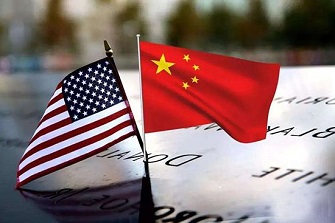
More US goods to be exempted from tariffs
China on Thursday extended another goodwill gesture to the US by exempting more US products from its tariffs, as officials on both sides continued to put the final touches on the phase one trade agreement, whose text was agreed on by both last week.The decision to release a second list of US products to be excluded from China's tariffs imposed in retaliation to the US' tariffs followed recent purchases of US soybeans, highlighting China's swiftness in keeping its commitments, experts noted. Washington should also follow suit to honor their commitments.
2019-12-23 -
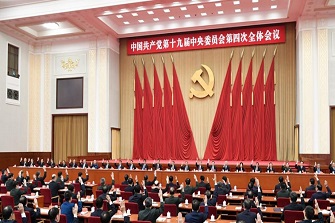
William Jones: The Path Forward
The Fourth Plenary Session of the 19th Central Committee of the Communist Party of China (CPC) , held in late October, received lots of attention. The session gathered 202 members and 169 alternate members, who discussed a work report presented by General Secretary of the CPC Central Committee Xi Jinping, followed by review and adoption of the Central Committee's decisions contained in a draft document on upholding and improving the system of socialism with Chinese characteristics and advancing the modernization of China's governance system.
2019-12-23 -
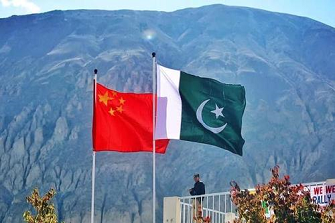
Liu Zongyi: How CPEC hurdles can be overcome
China and Pakistan are all-weather strategic cooperative partners. The two countries are forging a community with a shared future in which China-Pakistan Economic Corridor (CPEC) will play a major role. The CPEC is a major pilot project of the China-proposed Belt and Road Initiative (BRI). Yet the speed of construction of the CPEC has been slowing down recently for which there are three main reasons.
2019-12-20 -
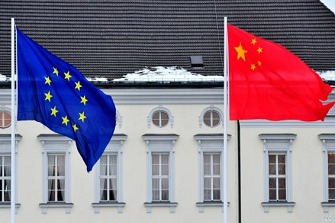
Ding Gang: How will Europe respond to China’s rise?
Two recent events in Europe have been extensively followed by Chinese media. First, as UK's general election was held on December 12 amid a volatile political climate, Brexit became a foregone conclusion. Second, the 5G technology of Chinese tech giant Huawei is facing resistance in Europe. The two events are landmarks in China-Europe and Asia-Europe relations in the 21st century.
2019-12-20 -

John Ross: How significant is the phase-one deal?
Last Friday, it was announced that China and the U.S. have agreed on a phase-one trade deal. As the full text of the agreement has not been made public yet, it is not immediately clear what the specific items agreed upon are. Nevertheless, many people on both sides have hailed it as practical progress in the trade talk. John Ross shares his thoughts on the conclusion of the deal and what the future holds for China-U.S. relations.
2019-12-20 -
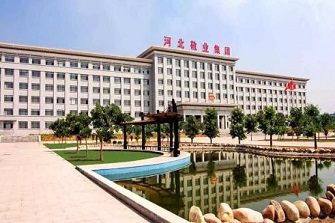
Jingye’s bid for British Steel still in progress, with details under discussion
Chinese private enterprise Jingye Group's bid to acquire the bankrupt British Steel is still in progress and the two parties have been discussing details of the transaction, a source familiar with the deal told the Global Times on Wednesday. The comment came after British media reports over the weekend said that the deal, which was allegedly valued at 70 million pounds ($91.64 million) and could save more than 4,000 jobs, was close to breaking down. Talks with the potential buyer Jingye were at risk as a deadline to finalize the terms approached, The Telegraph reported, citing Whitehall sources.
2019-12-19 -

Liu Ying: Further opening-up to protect free trade
This year is crucial to China's higher-level opening-up, symbolized among other things by the construction of the Belt and Road Initiative. That China, amid rising trade protectionism, hosted the second China International Import Expo which attracted more than 180 countries, regions and international organizations, and over 3,800 global enterprises shows it is not only committed to further opening up its economy but also increasing imports to meet Chinese people's ever-growing need for a better life and boost global trade.
2019-12-19 -
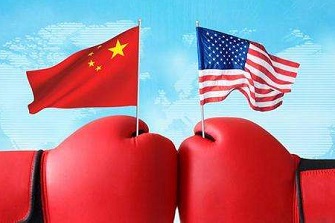
William Jones: Phase one deal, light at the end of the tunnel?
A lot of people breathed somewhat easier as the announcement came out that U.S President Donald Trump was ready to accept the partial agreement negotiated with China on trade and would not impose the tariff increase on Chinese products scheduled for December 15. There was little fanfare regarding the agreement, though. President Trump agreed to it at a meeting of his advisers on Friday and Michael Pillsbury, who has a strong bias against China but is an adviser to the president on China, elaborated on the discussion with the president on Fox's Lou Dobbs.
2019-12-18 -

Green Corridor to boost agricultural trade with Pakistan
China and Pakistan have agreed to launch a "Green Corridor" system that will fast-track two-way customs clearance exclusively for agricultural products, according to a statement from China's Ministry of Commerce (MOFCOM) on Thursday.The Green Corridor is expected to be launched between the Khunjerab pass in China and Sust pass in Pakistan. With the simplified clearance procedures and future improvement of transportation facilities, more agricultural products are expected to be imported from Pakistan, experts said.
2019-12-18 -
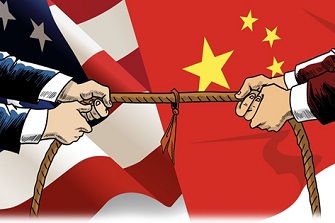
Wang Wen: How China can gain from trade headwinds
"US-launched trade war against China is turning into a protracted one, but we have been prepared," Yang Jinghui, chairman of a technology company in Hongmei, a town of Dongguan in South China's Guangdong Province, told me. As over half of the products that his company makes are sold to the US, his business has been deeply influenced by the tariffs slapped by the superpower. However, what I saw was his optimism and positivity, instead of anxiety and despair.
2019-12-17 -

HK financial sector remains stable amid social unrest
The months-long social unrest in the Hong Kong Special Administrative Region (HKSAR) has affected local economic development while the liquidity in the banking system remains robust, HKSAR Financial Secretary Paul Chan Mo-po said at a forum on Wednesday.Considering the capital inflows and outflows, the performance of the stock market, the free exchange of the Hong Kong dollar and its Linked Exchange Rate System (LERS), Hong Kong's banking industry is still seeing stable growth, Chan said, local media hkej.com reported.
2019-12-16 -
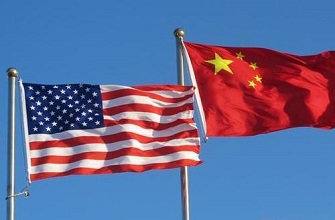
Zhao Minghao: Uncertainties remain in China-U.S. trade negotiations
China and the U.S. have announced the conclusion of phase one trade deal in a bid to ease the trade war. President Trump called it an "amazing deal" and revealed that the two sides would begin negotiations on the phase two deal soon. It's clear that the U.S. is getting softer on China than before. The White House is trying to use the China-U.S. trade deal and the signed U.S.-Mexico-Canada agreement as leverage to get Trump out of the political conundrum triggered by the impeachment process.
2019-12-16 -

China-backed metro project addresses Pakistan's public transportation needs
Chinese expertise on public transportation will help Pakistan to better address its growing demand for public transportation, as the country tested its first-ever mass rapid transit train in Lahore, its economic hub, a Chinese expert said on Wednesday. Pakistan on Tuesday put the Orange Line Metro Train through its first test run after the completion of the physical infrastructure stage of the project. The move is a major step forward under the China-Pakistan Economic Corridor (CPEC).
2019-12-16 -

Liu Zhiqin: Does the US have shortage of philosophers?
The US can boast of a good many world renowned scientists, skilled diplomats, top sportsmen and numerous arts and culture icons. There is no shortage of military strategists or writers either. Yet this promised land seems to run low on philosophers. Isn't it paradoxical?This wealthiest country on the Earth has the creme de la creme from all walks of life, and top notch professionals command the best salaries. All types of professionals except philosophers have a market value in the US. They don't have much of a podium, and have a small fan base. Not to mention, their work is not up to American standards.
2019-12-13 -

William Jones: Will Congress' Uygur bill provide 'aid and comfort' to our enemies?
Recent legislation, by the U.S. Congress targeting Chinese officials tasked with the goal of preventing terrorism in the northwestern region of China, Xinjiang, will no doubt provide "aid and comfort" to some rather despicable characters who view the United States and China as the "Great Satan," namely supporters of the East Turkestan Independence Movement, labeled by the United States as a terrorist organization shortly after 9/11.
2019-12-13 -

John Ross: Bay Area in vanguard of China’s global march
The Guangdong-Hong Kong-Macao Greater Bay Area is in the vanguard of China’s global economic rise, said John Ross, senior fellow at the Chongyang Institute for Financial Studies at Renmin University of China. Technological development in the region stimulated the integrated development of the entire Bay Area, which also contributed to the development of the world economy, Ross said in a speech at Vision China in Macao on Wednesday.
2019-12-12 -

Ding Gang: Besides water, Tibet can give India green lessons
In a recent conversation with an Indian friend of mine, I suggested that he watch the first episode of The Very Edge of China, a documentary aired not long ago on Discovery Channel. By recording a Chinese and a foreign explorer's adventures in China's extremely difficult living environments, the documentary shows the remarkable beauty and the way of life of locals living in harmony with nature.
2019-12-12 -
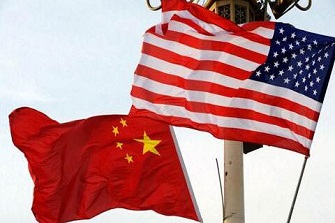
Wang Peng on China-US Relations in the Xi and Trump Eras
The trend of increasing polarization in U.S. domestic politics has made it so that current and future governments, no matter which political party, will find it difficult to propose, implement, and maintain a stable and peaceful China policy. It will be easier to go toward an extreme. This is because office holders (including presidential candidates), in a situation where it’s more and more difficult to reconcile political differences, will be forced to adapt to this polarization (or even make use of it, following the methods of Trump himself).
2019-12-12
























































































 京公网安备 11010802037854号
京公网安备 11010802037854号





